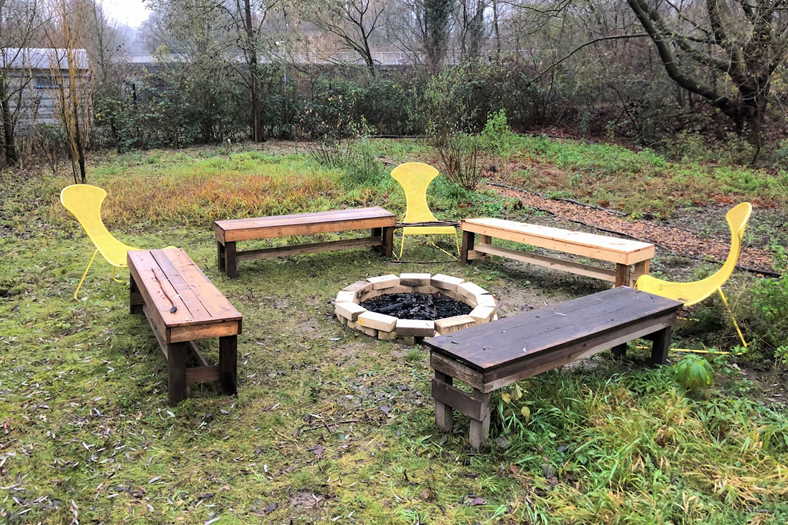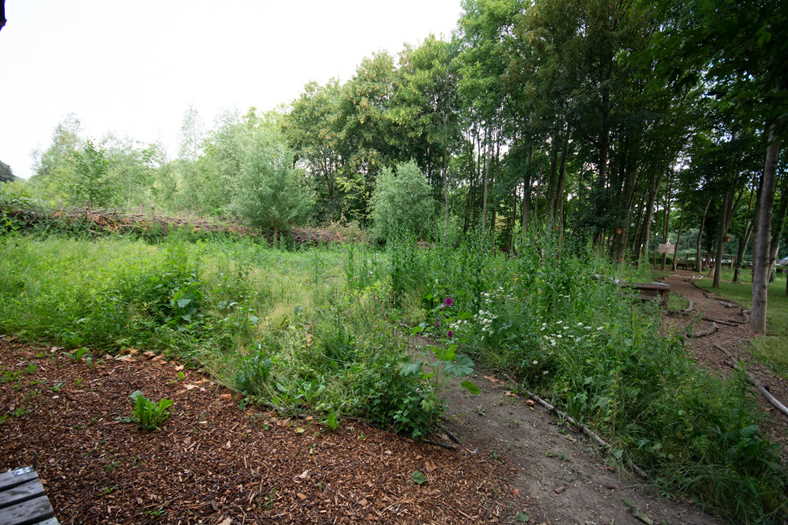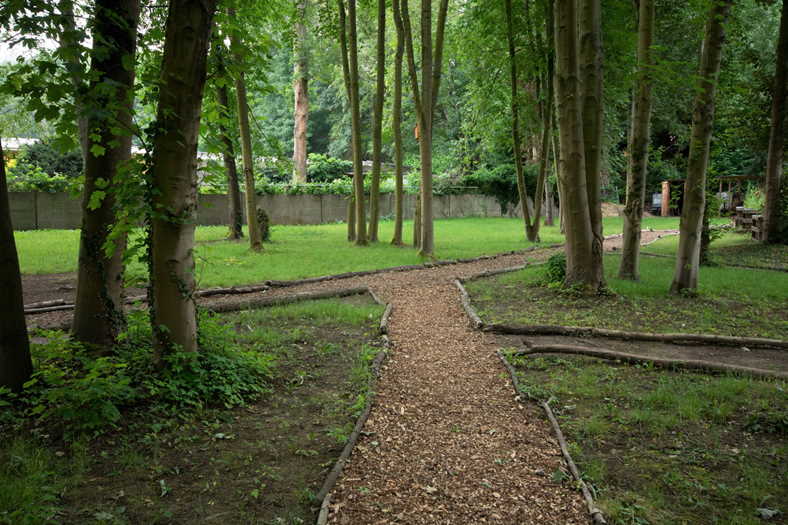WHO
Implemented by the innovation company Ewedo and with the collaboration of local job centres, the project targets children and young people, families, residents, people with migration backgrounds, and the unemployed.
The garden site was enlarged in cooperation with Emschergenosschenschaft (Regional Water Management Association).
WHAT
The Project Garden is located at Rheinische Straße 244. As part of the urban development in the Union Quarter, the Projectgarden aimed at enabling people to meet nature in an urbanized area. It is home to vegetables, wild plants and local herbs. The core idea of the project is to promote encounters and togetherness between residents and visitors with and without a migration background in the Union Quarter. One focus of the Project Garden is the work with children with and without a migration background from the district, who are provided with the opportunity to experience nature in urban spaces, also via training courses in areas such as wood and technology, gardening, sewing as well as cooking and preparation of the products from the cultivation. A nature adventure trail for children was also created. Long term unemployed could get involved in the project throughout the local job centre to support these activities as well as the maintenance and protection of the fenced area.
In 2020 the Projectgarden site was expanded and it now covers 6,000 square metres in the middle of the city of Dortmund.
HOW
Established 2016, it aims at enabling people to meet nature in an urbanized area. It is home to vegetables, wild plants and local herbs. It promotes encounters and togetherness between residents and visitors with and without a migration background in the Union Quarter district.
One of the aims was to connect several project activities including U-Jack, where people could grow and process food, including educational offers on basic landscape architecture and farming skills. Kicking-off the idea required long negotiations with the neighbours. Eventually, an agreement for two years was achieved, stating that the territory could only be used for gardening purposes with raised beds, meaning that no digging into the soil was allowed. Furthermore, it was agreed that no buildings could be raised on the ground.
Relevant courses have been provided to build capacity and interest and relevant education: such courses can include wood and technology (construction of raised beds, garden furniture, etc.), gardening, sowing and harvesting as well as cooking and preparation of the products from the cultivation.
The offer includes a nature adventure trail for kids to learn about the flora. Local events such as barbecue, festivities, and district walks could be provided for the benefit of the local community.



REFERENCES
Castro, A. and E. Wascher (2021), ‘Dortmunder U and Union Quarter - The Role of Meanwhile Uses in Urban Regeneration: T-Factor Advanced Case Study Report’, Working Paper, Technische Universität Dortmund, at http://dx.doi.org/10.17877/DE290R-22049 View File